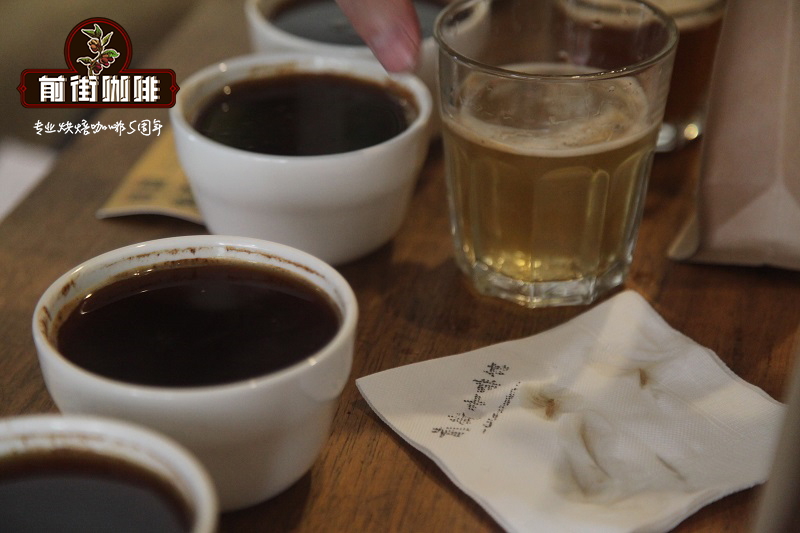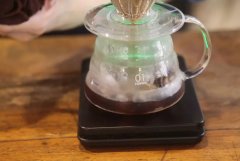What details should I pay attention to when making coffee? What are the basic principles?

The six basic principles for making coffee are:
1. Choose high-quality coffee beans: please choose sustainable whole-bean coffee, which will be roasted within a few weeks after picking. And if you want to join the thirdwave, the coffee renaissance that is now popular in the United States, choose lightly roasted coffee beans so that you can really taste the unique flavor of coffee.
Deep roasting will make the coffee beans lose these flavors. We know it sounds strange, but a deep-roasted coffee bean is like a steak that is not bad but has been baked beyond recognition.
two。 Freshly ground coffee before brewing: roasted coffee beans are fragile and perishable. Coffee contains more aroma components than red wine, but these aroma components will deteriorate quickly after oxidation.
Freshly ground coffee before brewing can retain the original flavor of these ingredients. Want to make your homemade coffee taste better, this is the most important point.
3. Store coffee correctly: coffee beans that are not used immediately should be stored in an airtight container to avoid sunlight. There is a lot of controversy in the coffee industry about whether coffee should be refrigerated or not.
We can compromise. Coffee beans that will not be used within two weeks can be refrigerated; coffee beans that will be used within two weeks do not need to be refrigerated.
4. Make the right mix of coffee and water: a common mistake is that you don't have enough coffee. We are reluctant to give up-we always feel that an extra spoonful of coffee is a waste. But the golden ratio we mentioned earlier is definitely an important starting point for making good coffee, and it's the easiest way to do that.
5. Focus on skill: discussing how to do each coffee brewing step by step is beyond the scope of this article, but there is a common fact behind all methods that making good coffee is a matter of accuracy and coordination.
Each cooking method has some special skills, but after repeated practice over and over again, you can correct your mistakes and make more and more progress.
6. Use premium tools: coffee made from premium tools tastes better than bargains from the discount area. Yes, these tools are more like upfront investments, but they are worth it in the long run. High-quality tools have a longer life and make the whole process of brewing coffee much easier.
1. The grinding particle size of coffee beans: the grinding particle size affects the surface area of the particles, and then affects the extraction rate. Coarse ground coffee beans have a smaller surface area than the same amount of finely ground coffee beans, making it more difficult for water to penetrate or extract coffee solids.
Uniform grinding size means that the extraction rate of oil and acid in coffee is equal, so that there are no large particles that are not fully extracted or small particles that are overextracted. This is why coffee experts always advocate the purchase of a high-quality disc grinder. You know what? They're right.
two。 Water temperature: because when the temperature is higher, the solid dissolves faster, so the temperature affects the extraction rate. In addition, the temperature determines which solid dissolves, which in turn affects the taste. The high temperature of the water will make the coffee sour, because the high temperature will release the unpleasant acidity in the coffee beans.
3. The number of times you stir the coffee grounds during brewing: you can stir the coffee grounds as the water passes by to further control the brewing process. Stirring is useful because it increases the diffusion rate of dissolved coffee solids in water, allowing coffee grounds to come into contact with water more quickly.
But stirring also has the effect of lowering the water temperature, which we know will affect the cooking process. But at the end of the day, it's just a skill you can master over and over again.
4. The ratio of coffee to water
But the key difference here is that when you mix coffee, you don't have to strictly follow the golden ratio. Instead, adjust it according to your own taste.
Last point. A good barista will tell you to make sure to adjust only one variable at a time so that you can accurately observe the results. Adjusting two variables at a time will confuse the result, and you will not know whether you changed the X variable or the Y variable, causing the change of the result.
Important Notice :
前街咖啡 FrontStreet Coffee has moved to new addredd:
FrontStreet Coffee Address: 315,Donghua East Road,GuangZhou
Tel:020 38364473
- Prev

What is the Japanese ice hand rush? Hot hand flush with ice is a Japanese ice hand flush?
Professional coffee knowledge exchange more coffee bean information please follow the coffee workshop (Wechat official account cafe_style) recently the weather is slowly getting hot, it is very suitable for a cup of iced coffee! If you want iced coffee but you don't have a curling kettle and you don't want to wait a day or two, have a Japanese ice hand. But what is the Japanese ice hand? | Japanese ice hand rushes the so-called
- Next

What details should I pay attention to when making coffee? What are the basic principles?
The six basic principles for making coffee are: 1. Choose high-quality coffee beans: please choose sustainable whole-bean coffee, which will be roasted within a few weeks after picking. And if you want to join the third wave of the coffee renaissance (thirdwave), which is now popular across the United States, choose lightly roasted coffee beans so that you can really taste the unique flavor of coffee. Deep baking
Related
- What is the meaning of lactic acid fermentation with coffee bean treatment?
- How to judge the state of foam by sound?
- How does the latte pull out the unicorn pattern? Come to get for a little trick to improve the flower pull!
- Will flower pulling affect the taste of the latte?
- Do you know the history of coffee?
- The difference between honey treatment and sun washing what is raisin honey treatment?
- What kind of milk can a novice use to make coffee foam to keep the foam longer? The correct method and skills of milking tutorial sharing
- Why do washed coffee beans taste sour? Flavor characteristics of washed Coffee
- Introduction to the skill of how to practice the size and height of water injection around the circle of hand-brewed coffee
- How do beginners practice coffee flower drawing from scratch?

